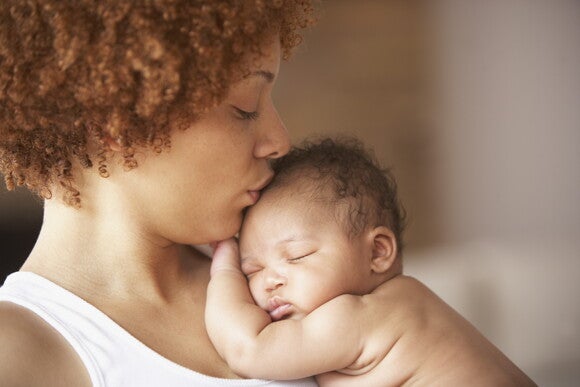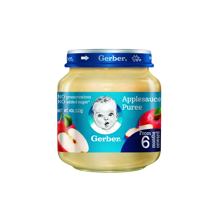
Why does childbirth cause mood disorders?
Before we speak about postpartum depression or baby blues, it’s important to understand why childbirth may cause mood disorders since its reasons may be hard to understand at first.
You see, childbirth, particularly a first child, often implies a major emotional and physical event in a woman’s life, and in some cases, it may also imply an intense and even negative experience, depending on how difficult childbirth ends up being.
Giving birth can be a traumatic moment, but even if it isn’t, there are many things that may happen to a first-time mom right after birth:
- Hormonal changes: after delivery, estrogen and progesterone levels drop rapidly, which can affect brain chemistry and mood regulation.
- Lack of sleep: newborn care often results in very interrupted sleep schedules, which is a known trigger for anxiety, irritability, and depression.
- Stress and responsibility: caring for a newborn is no small task, it can feel overwhelming, especially for first-time parents. This emotional strain can take a toll on one’s mental health.
- Previous mental health conditions: when faced with everything that maternity implies, women with a history of depression, anxiety, or other mood disorders may develop postpartum depression.
- Physical recovery: it’s important not to forget that childbirth is an incredibly strenuous, distressing and even painful process. It can be physically and emotionally exhausting. Mood disorders could be triggered by physical pain or the lingering discomfort from labor or cesarean delivery.
- Social and emotional factors: There are many emotional and social factors around childbirth, it is a time when a woman needs as much support from family and friends as possible and so, feeling unsupported may have serious negative consequences.
What is postpartum depression and what are its signs?
Postpartum depression is a serious mood disorder that can affect women after giving birth. While it’s normal to experience emotional ups and downs during this period, this disorder goes beyond typical exhaustion or stress.
Postpartum depression can interfere with a mother’s ability to care for herself and her baby and often requires professional support to overcome it.
Common signs of postpartum depression include:
- Persistent sadness, hopelessness, or emptiness
- Excessive crying
- Difficulty bonding with the baby
- Loss of interest in activities once enjoyed
- Changes in appetite or sleep (too much or too little)
- Irritability or anger
- Severe anxiety or panic attacks
- Feelings of guilt, worthlessness, or shame
- Thoughts of harming oneself or the baby
These symptoms can appear within the first few weeks after delivery, but may also develop later, up to a year after childbirth.
What is “baby blues” and what are its signs?
In contrast the “baby blues” is a very real and common yet temporary emotional state that affects many new mothers in the first few days after childbirth.
Unlike postpartum depression, the baby blues are short-lived and usually resolved without the need for medical intervention, once hormonal, physical and emotional factors begin to restabilize.
Signs of baby blues include:
- Mood swings
- Feeling overwhelmed
- Irritability or frustration
- Trouble sleeping despite feeling tired
- Mild anxiety
- Crying for no clear reason
These symptoms typically begin two to three days after delivery and may last for up to two weeks. They are linked to hormonal changes, sleep deprivation, and the adjustment to life with a newborn.
How to differentiate postpartum depression from “baby blues”
Postpartum depression and baby blues share some emotional symptoms, and at the beginning, telling them apart may be hard, however there are important differences you can spot:
The baby blues are mild, short-term emotional changes. They are considered a normal response to the hormonal shifts and physical exhaustion that follow childbirth. Most women with baby blues still manage to care for their baby and themselves, even if they feel more emotional than usual.
In contrast, postpartum depression is more intense, lasts longer, and significantly affects daily life. Symptoms of postpartum depression may begin within the first few weeks after delivery or even several months later.
Crucially, postpartum depression doesn’t go away on its own and can make it hard for a mother to bond with her baby or perform everyday tasks.
A key sign that it may be more than just baby blues is the duration of the symptoms. If emotional struggles persist for more than two weeks, or if feelings of sadness, anxiety, or hopelessness become overwhelming, it’s important to seek help.

What to do in case of postpartum depression?
If you or someone you know is showing signs of postpartum depression, acting early can make a significant difference in recovery. Here are some recommendations:
- Talk to a healthcare provider: a doctor, midwife, or mental health professional can evaluate symptoms and recommend the best treatment.
- Seek emotional support: talking to a partner, family member, or friend can reduce feelings of isolation which may be key to begin the healing process.
- Join a support group: do not underestimate the power of sharing experiences with other mothers who are going through the same struggles, it can be a very comforting experience.
- Prioritize rest and nutrition: while it’s not always easy, getting sleep, eating well, and asking for help with baby care are essential. Remember that in some cases poor sleep can be a significant part of the problem.
- Consider therapy or medication: psychotherapy, counseling, and sometimes antidepressants are effective tools in managing postpartum depression.
Always remember, postpartum depression is not a sign of weakness or failure, it’s a medical condition that can be treated. With the right support, mothers can recover and enjoy their new role with confidence and joy.
SOURCES
Postpartum depression, Mayo Clinic, obtained from: https://www.mayoclinic.org/diseases-conditions/postpartum-depression/symptoms-causes/syc-20376617
Baby Blues, American Pregnancy Association, August 2015, obtained from: https://americanpregnancy.org/es/healthy-pregnancy/first-year-of-life/baby-blues/
Perinatal depression, National institute of mental health, 2024, obtained from: https://www.nimh.nih.gov/health/publications/espanol/depresion-perinatal








